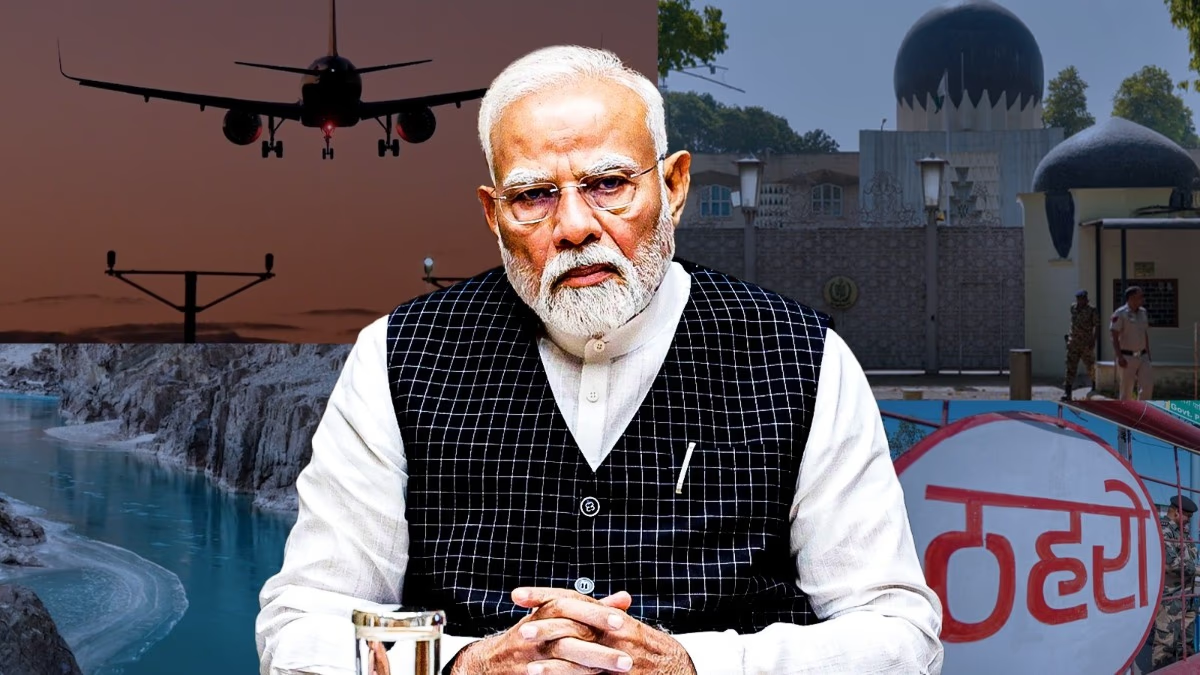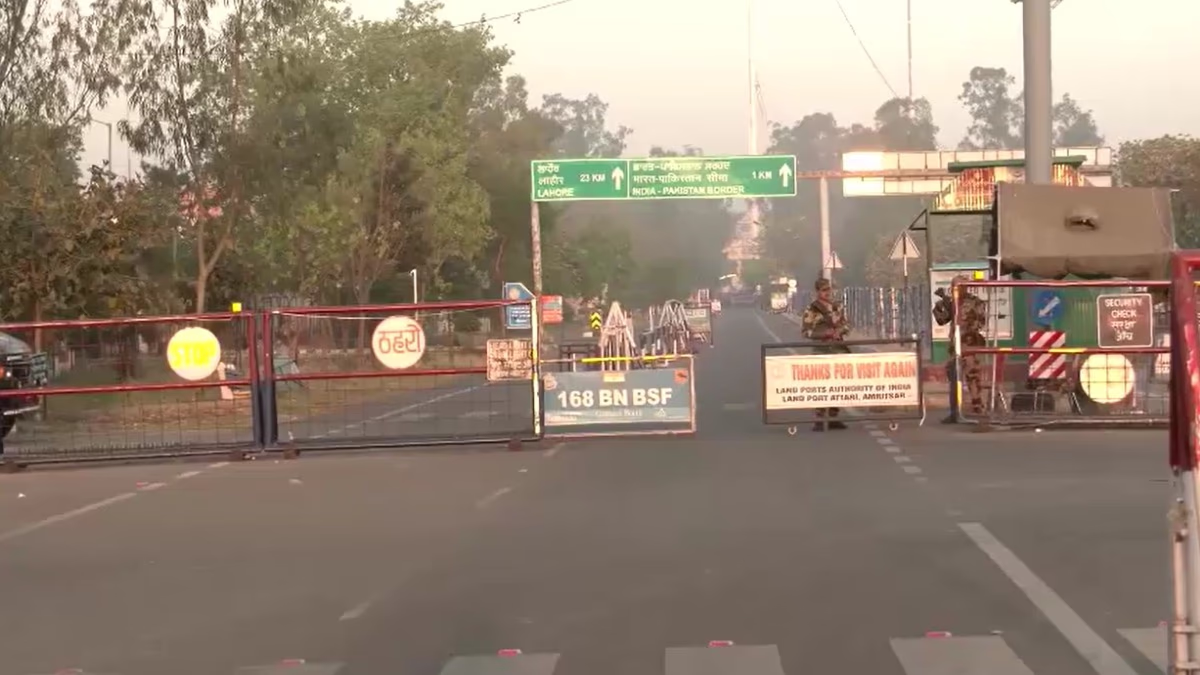Since the Pahalgam terror attack, India has been taking stern actions against Pakistan. On Wednesday, the government decided to close its airspace to Pakistani aircraft. Prior to this, over the last nine days, India had taken several stringent measures on land, water, and air to corner Pakistan. The terrorist attack on April 22 targeted tourists in Pahalgam, resulting in the death of 26 people.
Attari-Wagah Border Closed
The very next day, on April 23, a crucial Cabinet Committee on Security (CCS) meeting led by Prime Minister Narendra Modi was held. Five major decisions against Pakistan were made during this meeting. India promptly shut down the Attari Border checkpoint, effectively preventing any Pakistani citizens from entering India, even if they possessed a valid Indian visa.
Diplomats Ordered to Leave the Country
In the same CCS meeting, it was decided to shut the Indian embassy in Pakistan, a significant diplomatic maneuver. Additionally, all Pakistani diplomats in India were ordered to leave within 48 hours, and the issuance of Indian visas to Pakistanis was halted. The government declared that no Pakistani national would be allowed to enter India post-attack.
SAARC Visa Exemption Suspended
Moreover, the SAARC visa exemption for Pakistan was revoked with immediate effect, barring their citizens from entering India. The most significant decision made in this meeting was the suspension of the Indus Waters Treaty, a move not taken even after the 1965, 1971, and 1999 wars.
Indus Waters Treaty Suspended
This decision equates to a 'Water Strike' on Pakistan, as the Indus and its tributaries are vital to its survival. The suspension poses a severe challenge for Pakistan, whose agriculture, hydropower projects, and 240 million citizens rely on the Indus for water. This is perhaps the most impactful action taken against Pakistan.
Reduction in High Commission Staff
India declared the defense, naval, and air force advisors in the Pakistani High Commission as persona non grata, ordering them to leave the country by April 30. Additionally, the number of staff at both Indian and Pakistani High Commissions was reduced from 55 to 30, effective by May 1. The CCS has also directed security forces to remain vigilant and ensure the perpetrators are brought to justice.
Pakistan Faces 'Digital Strike'
In retaliation to the attack, India executed a digital strike on Pakistan by banning 16 Pakistani YouTube channels, including those of Shoaib Akhtar and Syed Muzammil Shah, to curb anti-India propaganda. Several Pakistani X handles and sites have also faced restrictions, and some popular Pakistani actors' handles have been banned.
Military Granted Full Autonomy
Prime Minister Modi held a high-level meeting with Defense Minister Rajnath Singh and the chiefs of the three military forces. It was decided that the military would have full autonomy to retaliate against terrorism decisively. The Prime Minister placed his full trust in the professional capabilities of the Indian Armed Forces, stating that the military is free to respond as it sees fit.
Military Responds to Firing
Agitated by India's stern actions, Pakistan has been repeatedly violating ceasefires along the LoC and international borders. However, Indian forces are giving a befitting response to Pakistani shelling. Meanwhile, Pakistan plans to dismantle terrorist launch pads near the border, fearing another surgical or air strike from India.
Decision to Close Airspace
Another significant step against Pakistan was made during a Cabinet Committee on Political Affairs (CCPA) meeting led by Prime Minister Modi on Wednesday. The Indian government has decided to close its airspace to Pakistani aircraft from April 30 to May 23, incurring substantial economic losses for the neighboring country.
Through these measures, India aims to cripple Pakistan completely. The government has conveyed that such steps will continue until Pakistan takes concrete actions against terrorism. Additionally, India informed the international community about Pakistan's malicious activities during a meeting with foreign diplomats, briefing them about the Pahalgam attack and alerting the world.




